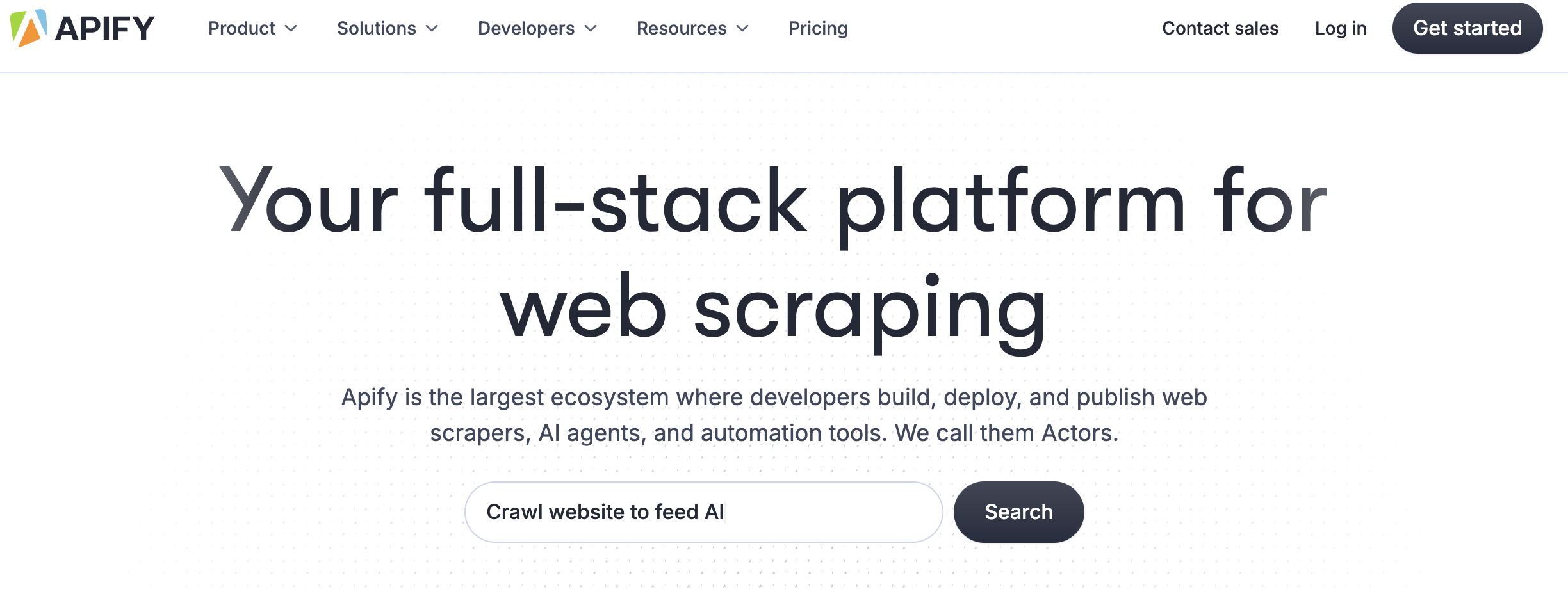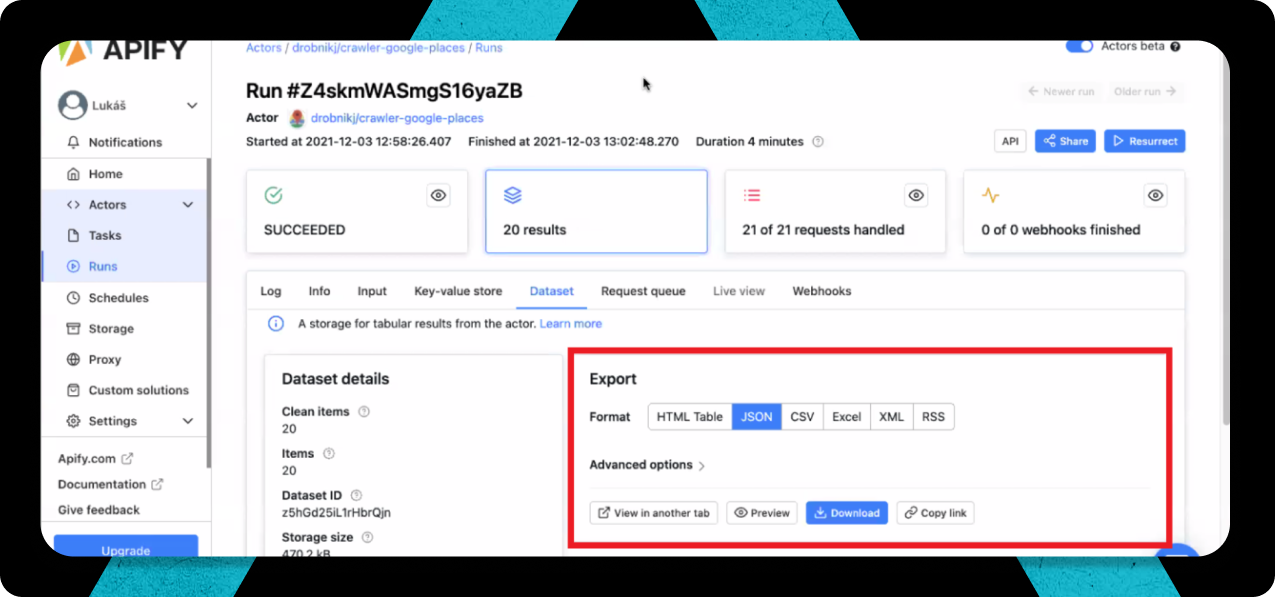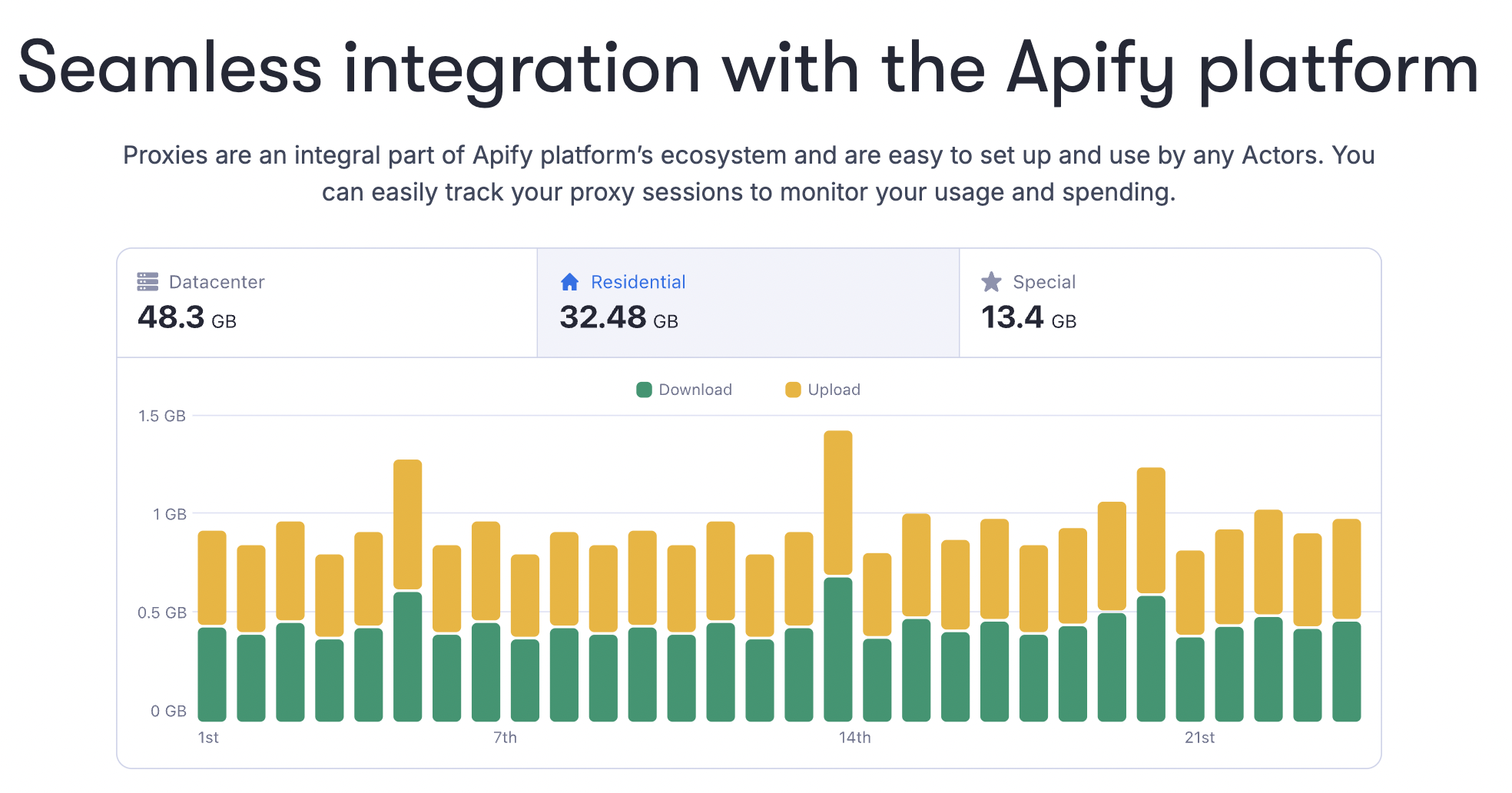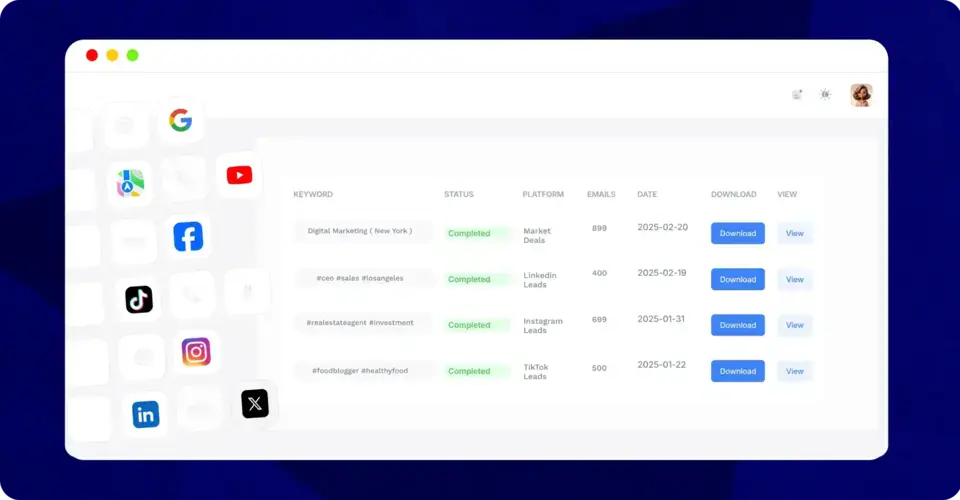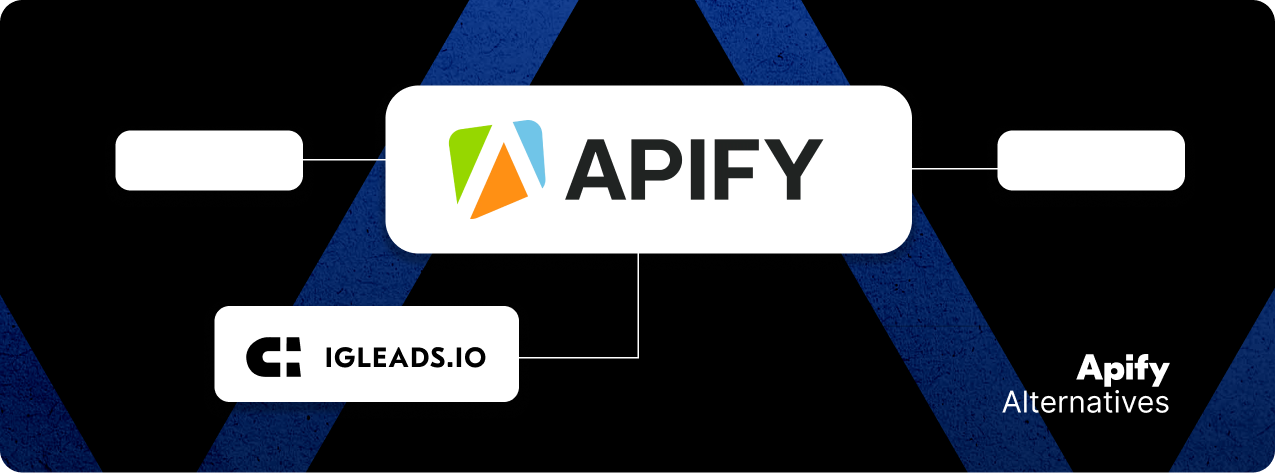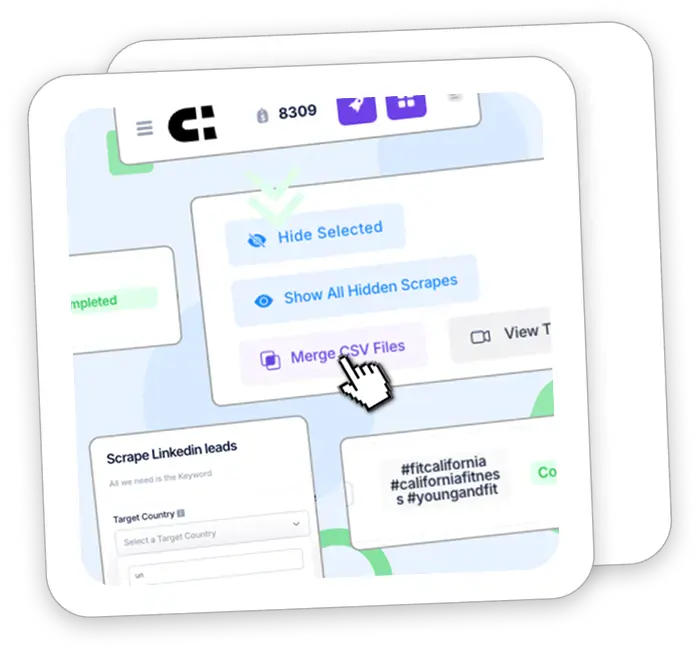Apify In-Depth Review 2025: Features, Pros & Cons
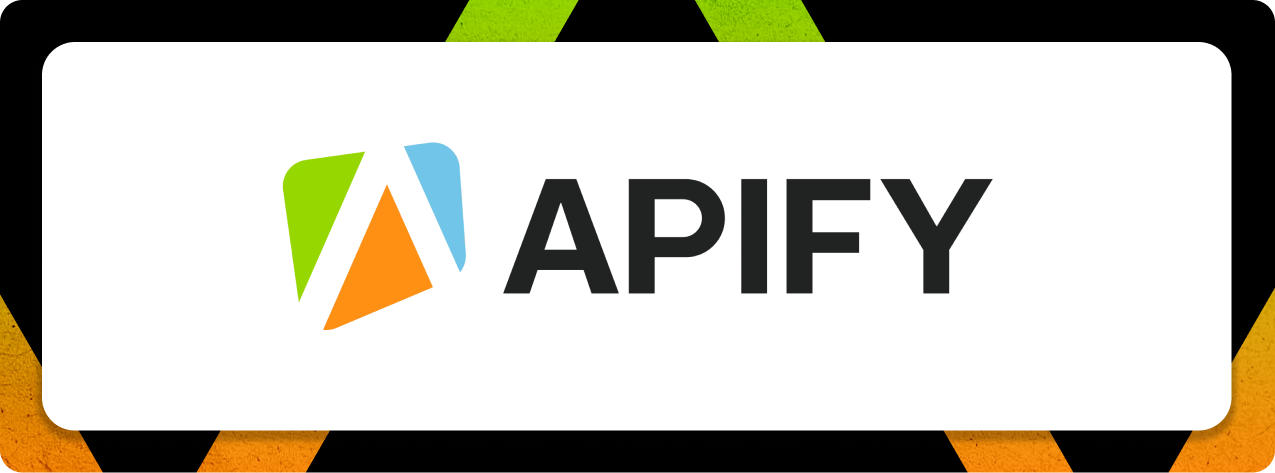
Apify positions itself as the go-to platform for web scraping and automation, boasting over 4,000 ready-made scrapers and impressive client success stories. But if your goal is fast, no-code lead generation, without the technical hassle, you might be better off with a specialized tool like IGLeads’ email scraper, built for simple and scalable lead extraction.
After testing Apify firsthand and analyzing real user experiences, the reality turns out to be more complex than the marketing suggests.
Here’s what Apify actually delivers: a powerful cloud-based scraping infrastructure that can handle everything from simple data extraction to complex automation workflows. The platform has evolved since 2015 from a Prague developer startup into a full-stack solution with AI integrations, proxy management, and scheduling tools that enterprise teams rely on daily.
The impressive numbers are worth noting. Some businesses report cutting lead sourcing time by 70% and reducing costs by 40% through Apify’s automation. The platform processes millions of web requests monthly and maintains one of the largest marketplaces of pre-built scrapers available.
But here’s the catch: Apify isn’t plug-and-play for everyone. The credit-based pricing model can be confusing, costs range from free tier limitations to $999/month business plans, and the learning curve is steep if you’re not technically inclined.
✅ Pros:
- Accurate direct dial and email data
- Simple, intuitive interface
- Fast enrichment for sales teams
❌ Cons:
- Smaller database vs. Apollo or ZoomInfo
- Limited multichannel outreach features
- Pricing can escalate fast for growing teams
Our Rating Breakdown
- Contact Data Accuracy: ⭐⭐⭐⭐
- Database Size: ⭐⭐⭐
- CRM Integration: ⭐⭐⭐⭐
- Email Automation: ⭐⭐
- Data Enrichment: ⭐⭐⭐⭐
- Chrome Extension: ⭐⭐⭐⭐
- Pricing Transparency: ⭐⭐⭐
Bottom line: Apify works exceptionally well for developers and tech-savvy teams who need robust scraping capabilities at scale. But if you’re looking for simple, no-code lead generation, you might find yourself wrestling with complexity when you just need results.
This review cuts through the marketing claims to show you exactly what Apify delivers in 2025, who it works best for, and whether the investment makes sense for your specific data extraction needs.
What Apify Actually Is (And Who Should Care)
Apify isn’t just another web scraping tool. It’s a cloud-based platform built around “Actors”, serverless programs that handle specific data extraction and automation tasks. Think of Actors as specialized workers: one scrapes Google Maps listings, another pulls Instagram profiles, and yet another monitors competitor pricing.
IGLeads handles all the scraping complexity behind the scenes. So you never have to worry about proxies, CAPTCHAs, or rate limits. Just enter your keywords or hashtags and get your lead list.
Built for Three Different User Types
Developers get a playground: The platform offers APIs, custom scripting capabilities, and the Crawlee SDK for building sophisticated scrapers using technologies like Playwright and Puppeteer. Developers can even monetize their custom Actors through the Apify Store, earning revenue when other users run their scrapers.
Businesses get ready-made solutions: Over 4,500 pre-built scrapers are available in the Apify Store. Need competitor pricing data? There’s an Actor for that. Want to scrape Google Reviews? Another Actor handles it. Most business users can find what they need without coding.
Enterprises get the full package: Dedicated support teams, enterprise SLAs, and privacy guarantees. The platform automatically scales to handle massive data extraction projects without additional infrastructure investment.
Where Teams Actually Use Apify
Lead generation is the most common use case. Sales teams automate contact collection from websites, social media, and business directories. Some users report saving 40 hours of manual work per project through automation.
Market research becomes faster and cheaper. Instead of paying $15,000+ for industry reports, companies extract real-time data directly from product reviews, competitor sites, and industry sources.
Content monitoring and automation goes beyond basic scraping. Teams build workflows that handle form submissions, track inventory changes, and monitor competitor activities on schedules.
The platform exports data in standard formats (JSON, CSV, Excel) and integrates with tools like Zapier, Make, and Google Sheets, making it easy to feed scraped data into existing business workflows.
What I like: Apify’s Actor marketplace eliminates the need to build scrapers from scratch for common tasks. The cloud infrastructure handles scaling automatically, and the platform supports both no-code solutions and custom development.
What Apify Actually Delivers: Core Features Breakdown
Apify’s feature set goes well beyond basic web scraping. After testing the platform extensively, here’s what actually matters for businesses looking to extract data at scale.
The Apify Store: 5,000+ Ready-Made Scrapers ⭐⭐⭐⭐
The Apify Store operates like an app marketplace, but for web scrapers. With over 5,000 pre-built “Actors” (Apify’s term for cloud-based scraping programs), you can find scrapers for virtually any website without writing code.
These Actors run as isolated Docker containers with standardized inputs and outputs, making them incredibly reliable. Each one handles specific tasks, from extracting Google Maps reviews to pulling Instagram profiles, and you can chain multiple Actors together for complex workflows.
Some standout scrapers include:
- Google Maps extractor (business details, reviews, contact info)
- Instagram scraper for posts, profiles, and comments
- Twitter/X content extraction at $0.40 per 1,000 tweets
- Apollo lead generator that can pull up to 50,000 leads per search URL
What I like: The Store eliminates the need to build scrapers from scratch. Most popular websites already have tested, maintained scrapers ready to use. For businesses that need quick results without development overhead, this is genuinely valuable.
Crawlee SDK: For Custom Development ⭐⭐⭐⭐⭐
If pre-built scrapers don’t cut it, Apify’s Crawlee SDK provides an open-source framework for JavaScript and Python developers. Unlike other scraping libraries, Crawlee automatically handles the pain points: proxy rotation, blocking prevention, and browser automation.
The SDK includes specialized crawlers like PlaywrightCrawler for JavaScript-heavy sites and intelligent fingerprinting that mimics human browsing behavior. This dramatically reduces the chances of getting blocked, a major advantage for large-scale projects.
AI Integration: The 2025 Upgrade ⭐⭐⭐
Apify’s AI capabilities represent its biggest evolution in 2025. The platform now extracts web data in formats designed for training AI models and feeding LLMs with real-time information.
The Website Content Crawler can format text for vector databases like Pinecone, enabling semantic search applications. More impressive are the autonomous AI agents that can browse websites, extract structured data, and execute complex tasks like personalized outreach.
This isn’t just marketing fluff. Businesses are using these AI features to automate research and content generation at scale.
Proxy Management That Actually Works ⭐⭐⭐⭐⭐
Apify Proxy handles one of scraping’s biggest challenges: avoiding IP blocks. The system rotates between datacenter and residential IPs automatically, with health monitoring and geolocation options.
Key advantages:
- Single endpoint simplifies integration
- Fixed IP sessions for logged-in operations
- Automatic failover when IPs get blocked
- Choice between fast datacenter proxies and reliable residential IPs
For medium to large scraping operations, this proxy infrastructure is essential. Manual proxy management becomes a nightmare at scale.
Infrastructure: Scheduling and Cloud Execution ⭐⭐⭐⭐⭐
Apify’s backend handles the operational complexity of running scrapers reliably. The scheduling system uses cron expressions with timezone support and typically fires within one second of specified times.
The platform auto-scales compute resources based on demand, so you don’t manage servers. Comprehensive logging and monitoring track performance, while cloud execution ensures reliability.
Bottom line: These infrastructure features let you focus on using the extracted data instead of babysitting the scraping process. For teams running regular data collection, this operational simplicity is worth the investment.
How to Sign Up for Apify
Getting started with Apify is straightforward and only takes a few minutes.
- Go to Apify.com and click “Sign Up”.
- Create an account using your email, Google, or GitHub login.
- Once inside, explore the Apify Store to find pre-built scrapers (Actors) or start a free trial to test them.
- Connect your workflow using integrations like Zapier, Make, or Google Sheets—or access the API for custom automation.
- Monitor your usage in the dashboard, adjust compute limits, and upgrade plans as needed for larger tasks.
Understanding Apify’s Pricing: What You Actually Pay
Apify’s pricing structure centers around compute units and credits, which sounds simple until you start calculating actual costs. Here’s what each plan delivers and whether the investment makes sense for your scraping needs.
Breaking Down The Four Pricing Tiers
The Free Plan gives you $5 in monthly credits, enough to test basic scrapers but not much else. Most users hit the wall quickly and need to upgrade.
Starter Plan ($49/month) includes $39 in prepaid credits plus 32GB of memory for your scrapers. It’s designed for individuals or small teams doing light scraping work.
Scale Plan ($499/month) bumps you up to $199 in prepaid credits with better compute unit rates ($0.30/CU vs $0.40/CU). The real advantage is 128 concurrent runs versus Starter’s 32, so you can process data much faster.
Business Plan ($999/month) delivers the lowest compute unit cost at $0.25/CU, 256 concurrent runs, and dedicated support. Enterprise-level features come with enterprise-level pricing.
The concurrent run limits matter more than you might think. If you’re processing large datasets, higher-tier plans don’t just cost more. They actually finish jobs faster.
How Compute Units Work (And Why It Matters)
Compute units (CUs) determine your actual costs. The formula is Memory (GB) × Duration (hours) = CUs consumed. Simple enough, but here’s where it gets interesting.
Browser-based scrapers typically process about 300 pages per CU. Plain HTTP scrapers can handle roughly 3,000 pages per CU. That’s a 10x difference in efficiency, which means your technical choices directly impact your monthly bill.
Most users don’t realize this upfront and end up with higher costs than expected when they choose browser automation for tasks that could work with simpler HTTP requests.
The Credit System: Flexible or Frustrating?
Apify’s credit-based model offers pay-as-you-go flexibility once you exceed your monthly allocation. You’re not locked into usage limits, just charged overages at your plan’s CU rate.
But many users find this system confusing initially. Unlike straightforward monthly subscriptions, you need to monitor usage and understand how different scraping approaches affect your costs. It’s transparent once you get it, but there’s definitely a learning curve.
For irregular usage patterns, Apify offers quarterly, biannual, or annual billing with a 10% discount. This works well if your scraping needs are seasonal or project-based.
Available Discounts and Promo Codes
Students get 30% off Starter and Scale plans. Startups that have raised under $5 million and are SaaS-based can qualify for 30% off the Scale plan for six months.
Apify periodically releases promo codes offering 20-25% discounts, usually on annual subscriptions. The most accessible option is the automatic 10% annual discount available during checkout.
IGLeads Pricing Overview
We won’t sugarcoat it: IGLeads is cheaper, faster, and easier to scale than Apify.
- Monthly Plans: Start at $49/month (if you commit annualy) for access to all scrapers with limited exports
- Unlimited Plan: $249/month (for a yearly contract) for unlimited scrapes and downloads
- Annual Plans: As low as $39/month when billed yearly
Bottom line: Apify’s pricing rewards technical optimization and consistent usage. If you’re comfortable with variable costs and can optimize your scrapers for efficiency, the model works well. If you prefer predictable monthly bills, this might feel more complex than you’d like.
What Real Users Say About Apify
User reviews tell the real story behind any platform’s marketing claims. After digging through hundreds of Apify reviews across G2, Reddit, Trustpilot, and other platforms, here’s what actual users report about working with this web scraping tool.
Apify Reviews Summary
| Pros | Cons |
|---|---|
| ✅ Massive library of pre-built scrapers (Actors) | ⚠️ Steep learning curve for non-technical users |
| ✅ Highly scalable cloud infrastructure | ⚠️ Credit-based pricing can be confusing |
| ✅ Robust proxy management included | ⚠️ Limited to scraping—no built-in outreach or CRM tools |
| ✅ Supports both no-code and fully custom scrapers | ⚠️ Costs can escalate for browser-based scrapers |
| ✅ Powerful developer tools with Crawlee SDK | ⚠️ Some Actors may be outdated or require maintenance |
The Learning Curve Reality
Let’s be honest: Apify isn’t beginner-friendly. Multiple users mention the same challenge. “For non-developers like myself, there is a learning curve”. Even experienced marketers find themselves needing to “brush up on JSON” or understand basic scripting concepts to unlock the platform’s full potential.
This technical barrier is real. But users who push through the initial complexity often find the workflow becomes manageable once they grasp the basics.
“No N8N easy setup in FAQ. Not enough video to explain MAKE integration”. – Stephane E., Consultant
Review Platform Breakdown
The numbers across major review sites paint a positive picture:
| Platform | Rating | Reviews |
|---|---|---|
| G2 | 4.7/5 stars | 100+ reviews |
| Capterra | 4.8/5 stars | 200+ reviews |
| Trustpilot | 4.6/5 stars | 44 reviews |
Users consistently praise the Actor Store as a major time-saver. One Trustpilot reviewer captures this well: “Apify has become an essential tool in our workflow. From ready-made actors to custom scripts, it handles everything with ease”.
Reddit Gets Real About Apify
Reddit discussions reveal more nuanced perspectives. Users appreciate the clean interface and robust functionality, but they’re also vocal about practical frustrations.
The biggest complaint? Support responsiveness. “The biggest issue is customer support. Response times are slow, and some users report that bug fixes take months”. Another common issue involves scrapers getting stuck mid-process, which affects billing.
Still, many Reddit users acknowledge Apify’s strength in handling both simple and complex scraping projects with reliable data quality.
Support Experience: Mixed Results
Customer support experiences vary significantly. Some Trustpilot reviewers call support “quick”, while Reddit feedback suggests slower response times. This inconsistency likely reflects different service levels across pricing tiers.
Google Reviews Scraper: Real-World Example
The Google Maps Reviews scraper shows Apify’s practical value. You can extract reviews by pasting a Google Maps URL, at just $0.50 per 1,000 reviews. With the free plan’s $5.00 monthly credit, you could scrape over 10,000 Google reviews without paying extra.
The tool connects seamlessly with Make, Zapier, Slack, and Google Sheets, turning raw review data into actionable business insights.
What Works (And What Doesn’t) About Apify
After testing Apify’s capabilities across multiple projects, here’s the honest breakdown of where it delivers and where it falls short.
“What we appreciate most about Apify is the combination of technical power and ease of use. The platform allows us to set up complex scraping operations quickly—even on dynamic sites like LinkedIn, Google Maps, and industry-specific directories”. – Dark F., CEO
Scalability & Infrastructure ⭐⭐⭐⭐
Apify’s cloud infrastructure handles serious scale without breaking a sweat. The platform automatically provisions resources and CPU allocation based on your requirements, so even massive scraping projects run smoothly. You’re not managing servers or worrying about capacity planning.
The proxy management system is particularly solid, rotating IPs intelligently to prevent blocks: essential for any serious data extraction project. Real-time monitoring and alerts keep your scrapers running without constant babysitting.
Actor Store & Ready-Made Tools ⭐⭐⭐⭐
What I like: The Actor Store is genuinely useful. Over 4,000 pre-built scrapers means you can grab an Actor for Google Maps, LinkedIn, or Twitter and start extracting data immediately. No development time. No testing. Just results.
This marketplace approach eliminates countless development hours and gets you operational fast. For teams that need quick wins, it’s a major time-saver.
✅ Pros:
- Cloud infrastructure scales automatically without management overhead
- Massive marketplace of pre-built scrapers ready to deploy
- Robust proxy management and IP rotation
- Comprehensive monitoring and alerting tools
- Handles complex automation workflows efficiently
❌ Cons:
-
- Steep learning curve for non-technical users
- Credit-based pricing model creates cost uncertainty
- Interface intimidates beginners despite no-code options
- Requires JSON knowledge and scripting concepts for full power
- Billing complexity involving multiple cost factors
No support (don’t include Discord as “support”). These unneeded actors max out my account. There are only 1 or 2 actors that have a delete or remove option. – Louis C., owner
Who Should Use Apify
Perfect for: Developers and tech-savvy teams who know JavaScript or Python. If you’re comfortable with technical concepts and need robust scraping capabilities, Apify delivers serious value. Small businesses and startups with technical comfort can leverage pre-built Actors without infrastructure investments.
Not ideal for: Anyone seeking a “click and go” experience. If you’re uncomfortable with technical concepts or lack basic scripting knowledge, you’ll hit walls quickly. As one reviewer noted: “For non-developers like myself, there is a learning curve”.
Even using pre-built Actors requires some technical understanding that many beginners simply don’t have. The credit-based pricing model also creates frustration when you’re trying to estimate costs for new projects.
Bottom line: Apify excels for technical teams who need enterprise-grade scraping capabilities. But if you’re looking for simple, immediate lead generation without technical overhead, you’ll find yourself fighting the platform instead of using it.
How does Apify compare to IGLeads?
When you’re deciding between Apify and IGLeads, you’re really choosing between two completely different philosophies. Apify is the Swiss Army knife of web scraping: powerful, flexible, but requires know-how. IGLeads is the precision tool: focused, fast, and built for people who need leads yesterday.
IGLeads: Built for Speed and Simplicity
IGLeads takes a radically different approach as a specialized scraping platform focused on social media lead generation. While Apify requires technical setup and coding knowledge, IGLeads works immediately. You can target leads by keywords, hashtags, locations, or niches across Instagram, Facebook, LinkedIn, Twitter, TikTok, and YouTube without writing a single line of code.
IGLeads delivers every scrape, whether it’s 100 or 10,000 leads, within a few hours or less, so you can plan your outreach with confidence and speed.
What I like: IGLeads eliminates the setup friction that slows down most scraping projects. You can go from idea to exported lead list in minutes, not hours. For social media prospecting, influencer outreach, or local business targeting, it’s incredibly efficient.
When Each Tool Makes Sense
Apify excels when you need custom development and complex automation workflows. It’s perfect for developers building sophisticated data pipelines or enterprises needing custom scraping solutions across multiple platforms.
IGLeads works best when you need social media leads fast without technical overhead. Think real estate agents scraping Instagram for local prospects, marketing agencies building influencer lists, or service providers targeting specific hashtags.
What I like about this combination: Many teams actually use both tools. Apify handles complex, custom scraping projects while IGLeads covers quick social media lead generation. You get the best of both worlds without forcing one tool to do everything.
Making the Right Choice
Choose Apify if you’re comfortable with JavaScript/Python and need versatile scraping capabilities across any website. The learning curve is steep, but the flexibility is unmatched.
Choose IGLeads if you’re a marketer, sales professional, or business owner who needs immediate contact data from social platforms. No technical skills required, just results.
If you want to look for other other options, we recommend reading our Apify alternatives article.
Start using IGLeads if you want straightforward social media lead extraction without the complexity.
Related to Apify
See all Apify Resources
Frequently Asked Questions
Apify offers powerful scalability, a vast Actor Store with pre-built scrapers, and excellent automation capabilities. However, it has a steep learning curve for non-developers and a complex pricing model that can be difficult to navigate.
Web scraping publicly available data is generally legal. However, users should be cautious about extracting personal information or copyrighted content, as this may have legal implications.
Apify is commonly used for data extraction, market research, lead generation, and creating custom APIs for websites. It’s also valuable for automating web tasks, collecting data for AI models, and performing sentiment analysis.
Developers can create and publish custom web scrapers on the Apify Store, setting their own prices. When other users utilize these scrapers, the creators earn revenue, similar to app stores for mobile applications.
While Apify is a versatile platform for custom scraping solutions, it requires technical expertise. In contrast, tools like IGLeads offer a no-code approach for specific tasks like email extraction from social media, making them more accessible for non-technical users.
